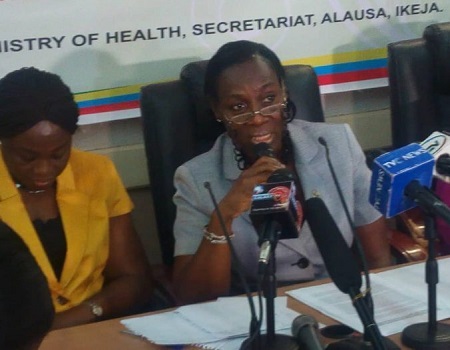A Professor of Public Health, Prof. Akin Osibogun has called for a state of perpetual watchfulness over emerging diseases in order to prevent them from spreading.
Osibogun, who works at the College of Medicine, University of Lagos, Akoka, made the call at the Lagos State Continuing Medical Education organised by the state Ministry of Health on Monday in Lagos.
The theme of the programme was: “Improving Quality Healthcare.”
According to him, there are various strategies the country can put in place to prevent disease outbreaks.
“A robust health records system will enable us to be watching the disease trends, and there is already an advance in the technology of vaccinology.
“We have vaccines against some diseases; so, diseases of public interest, the government should fund the vaccination to prevent the spread of those diseases.
“Public and private facilities have a responsibility to send reports to designated authorities, and in the case of Lagos State, the designated authority is the Ministry of Health.
“The ministry will maintain that watchfulness because they will act on behalf of the citizens in putting in place interventions to control any disease outbreak,’’ he said.
The expert said that there was a need for a robust health education system that would enable citizens to have any information about the causes and mode of transmission of diseases.
ALSO READ: EKSU inducts 43 pioneer medical students after a decade
Osibogun also said that there was a need to include the system in the schools curricular to allow children to have basic knowledge of diseases, and through them, the information could also get to the parents.
“Diseases constitute a drain on any nation’s economy; it reduces the productivity of the citizens and morbidity and mortality reduce productivity drastically.
“It is cheaper to prevent many diseases than to wait until they occur because opportunities that are forgone are usually never regained,’’ he said.
Also, the State Epidemiologist, Dr Ismail Abdus-Salam, said that in terms of readiness, the state had systems in place, which were ongoing.
Abdus-Salam said: “Lagos is ready and activities are ongoing; disease surveillance is a continuous activity.
“In the state, we have what we call ‘Ongoing Systematic Collection of Data’, analysis and interpretation of data about disease occurrence.
“We have a surveillance flow that starts from the level of the community, within which we have community informants who relate with health facilities.
“From these facilities, information gets to the local government, from there it gets to the state epidemiology unit and this information goes back in the opposite direction.
“The information will be processed, public health action will be taken, the result will be communicated as well to the facilities and to the people that are involved.’’
In her remarks, the Permanent Secretary, State Ministry of Health, Dr Titilayo Goncalves, said that health professionals were gathered from all over the state to educate them further about emerging diseases.
“We know that Congo has over 2,000 Ebola cases, and Nigerians travel a lot and this can come into Lagos at any time.
“So, what we have done is to get emergency preparedness that all health workers who are at risk can identify the infection in patients that are seen.
“We have to make sure we practice ‘Barrier Control’ in the sense that we protect ourselves, use gloves, masks, eye shields; and we protect ourselves from slashes when we have cut by binding them.
“We should desist from eating the source of the pathogens; people should not think that Ebola is gone, it can come back.
“We should always be ready to prevent all these diseases,” Goncalves said.






